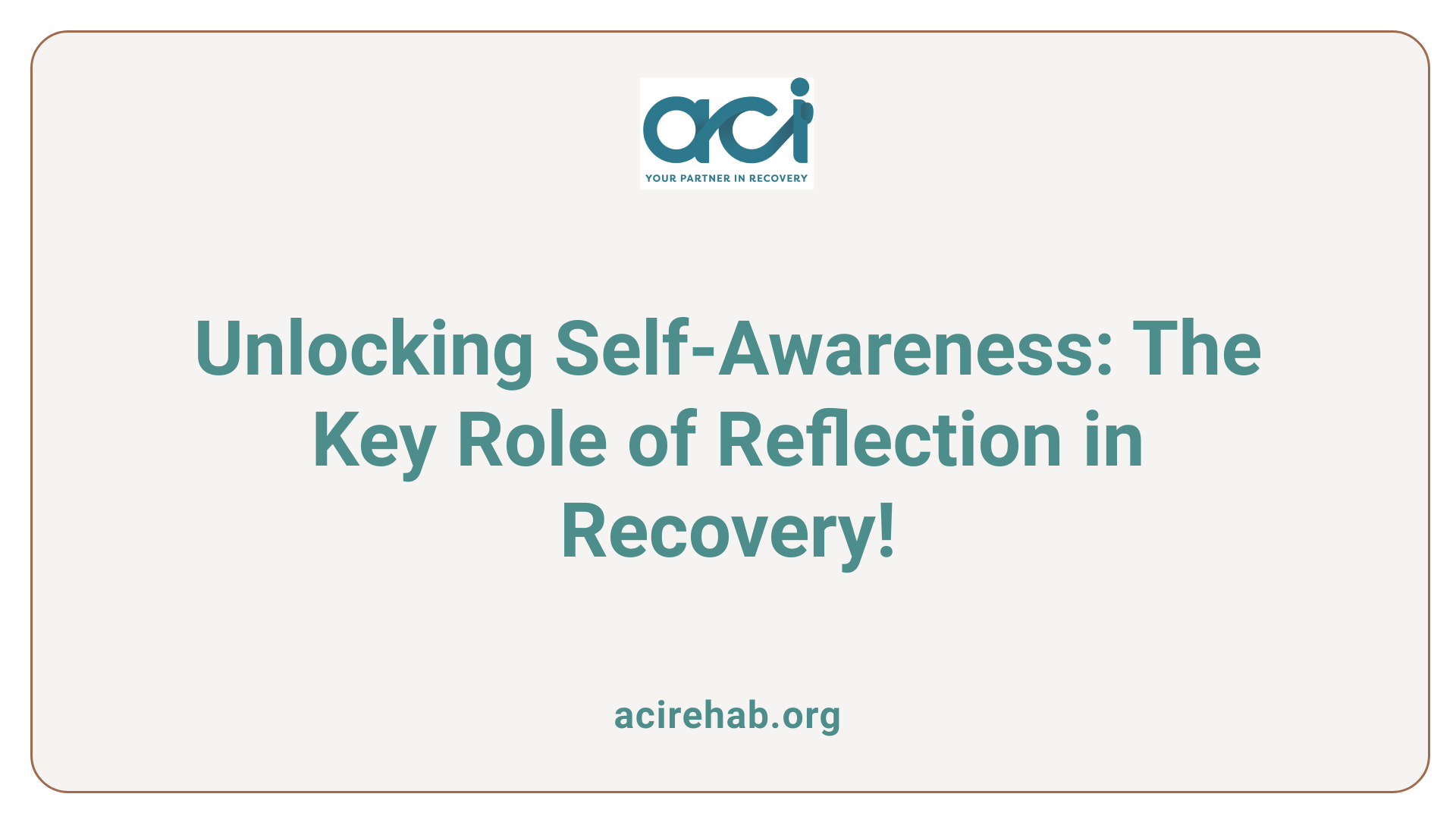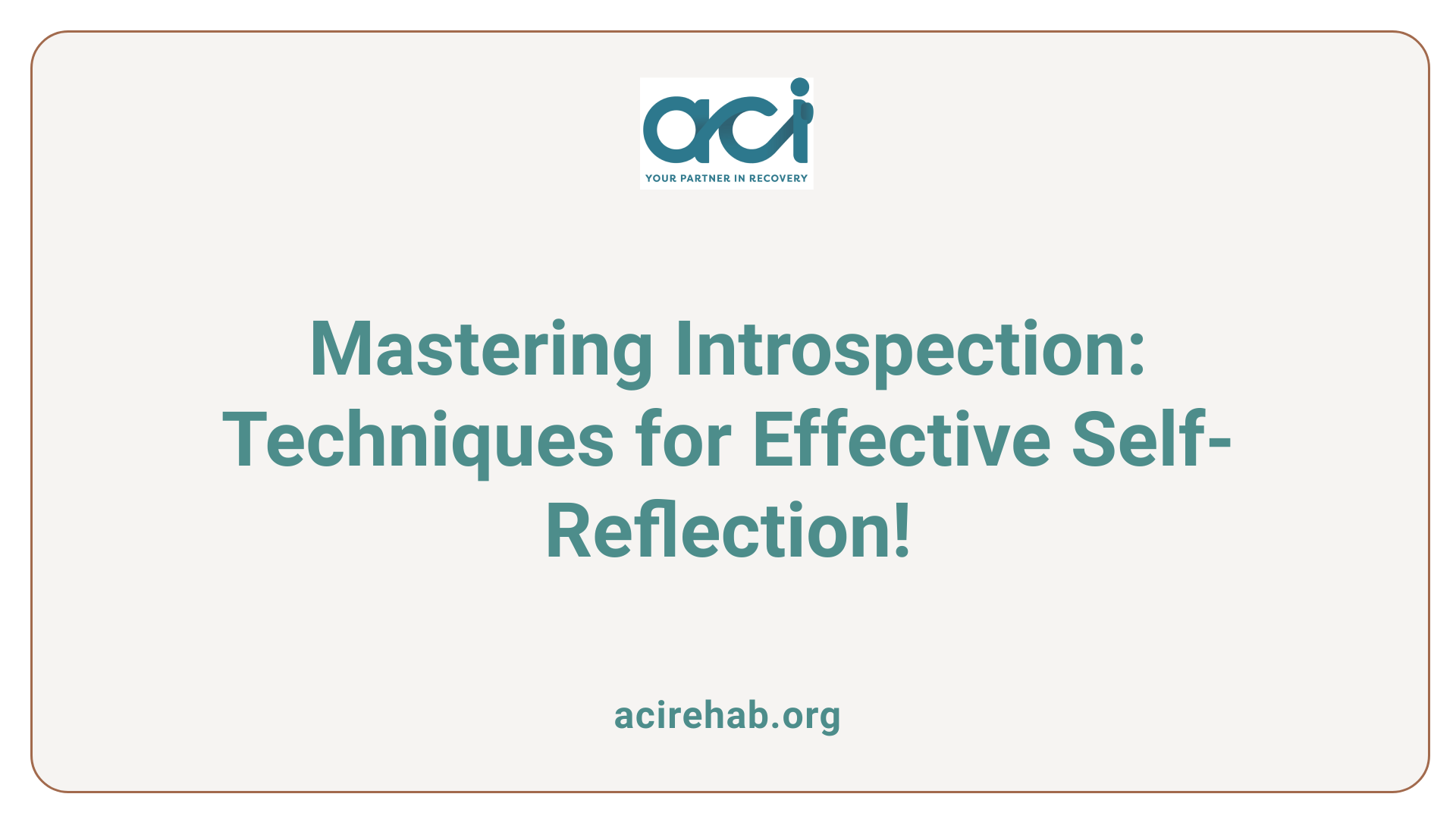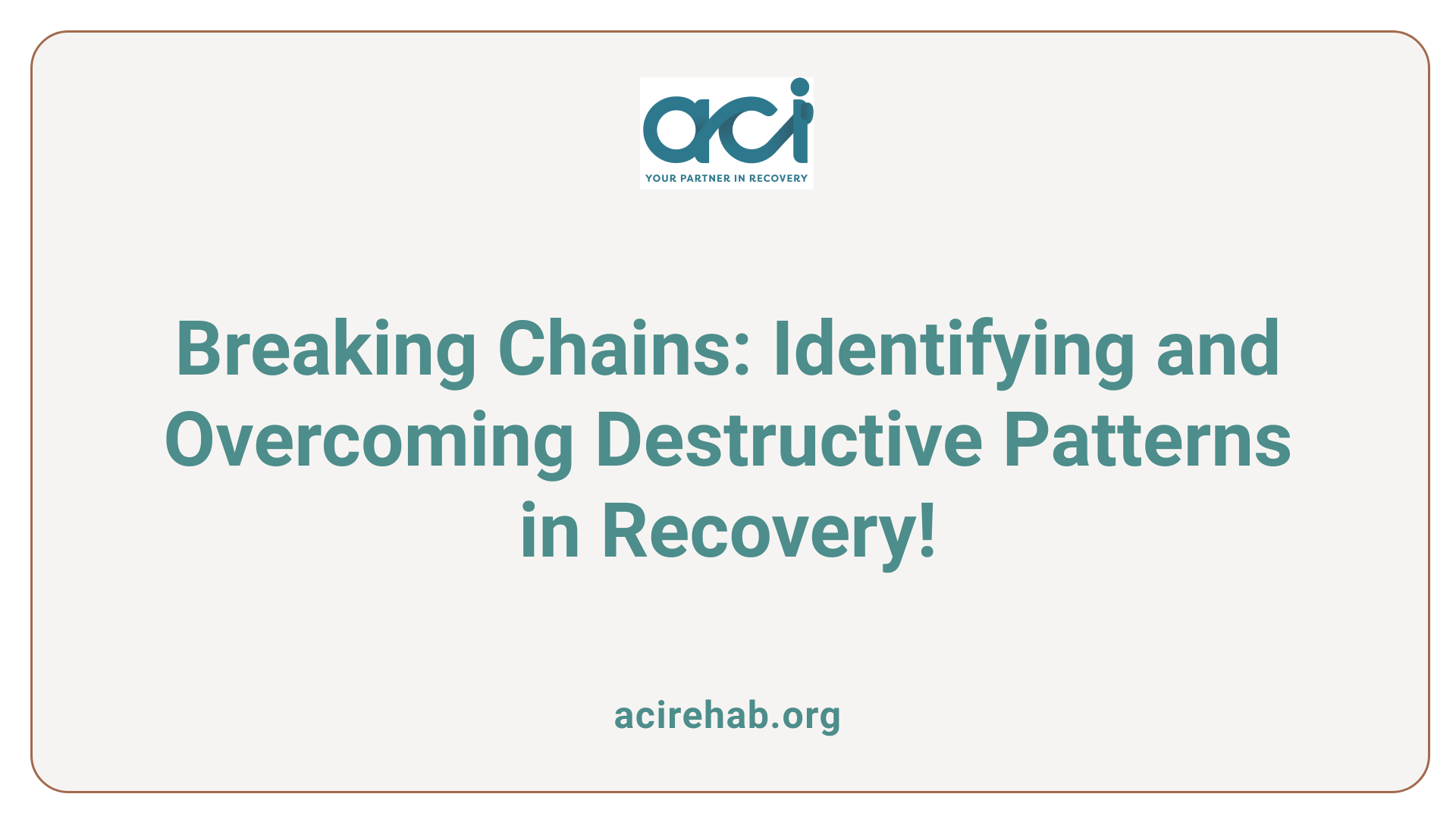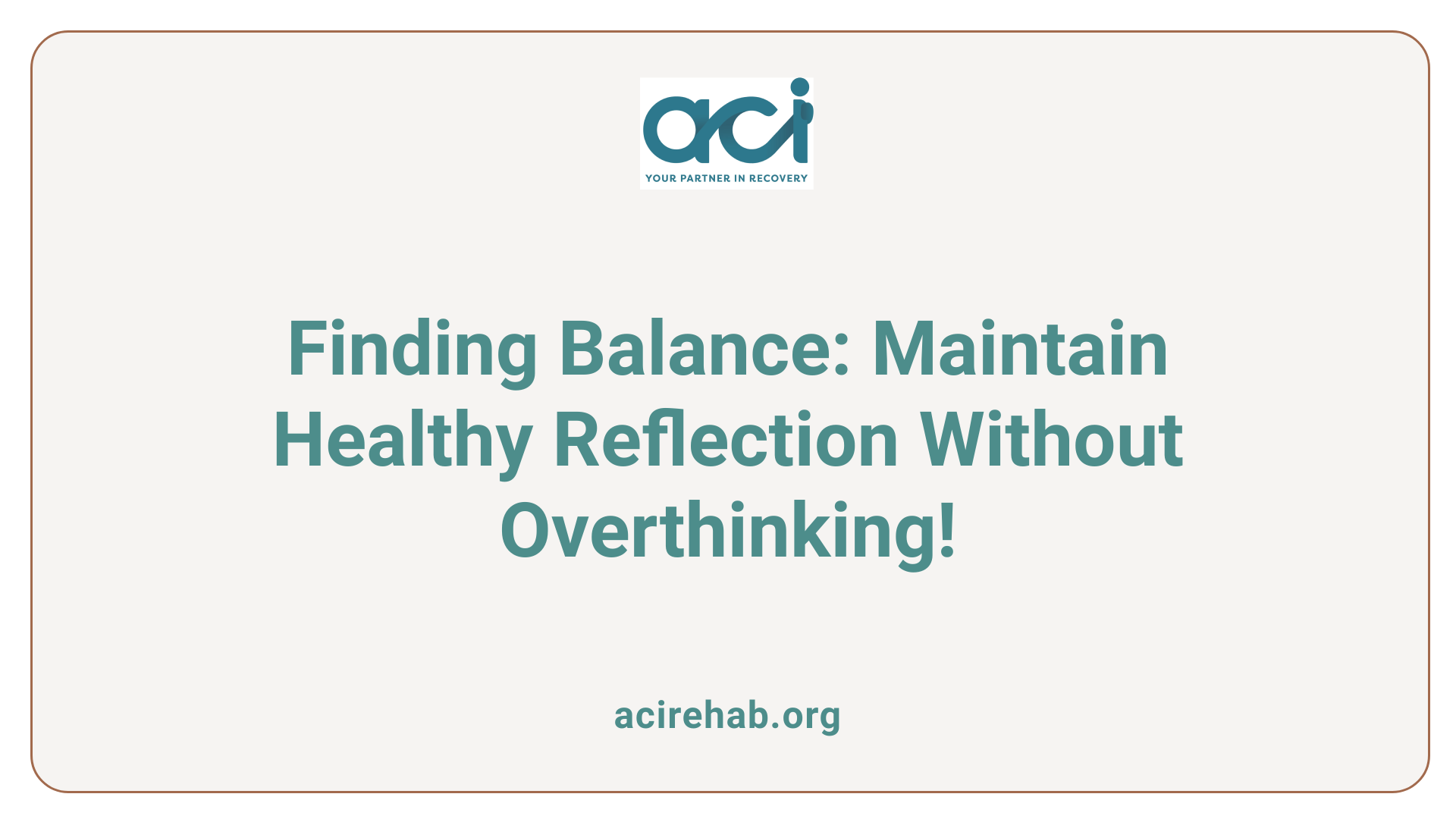Understanding Introspection’s Role in Recovery
In the journey of overcoming addiction and mental health challenges, introspection stands as a beacon of self-awareness and personal growth. The act of looking inward, reflecting on one’s emotions, thoughts, and experiences, has been acknowledged by health professionals and recovery programs alike as vital for sustainable recovery. In this piece, we will explore the significant role introspection plays in recovery, offering insights into its benefits, common practices, and techniques to aid personal transformation.
The Importance of Reflection in the Recovery Journey

Why is reflection crucial in the recovery process?
Reflection is an essential element in recovery that significantly enhances self-awareness. This practice allows individuals to discern self-destructive thinking patterns and emotional responses, which could potentially trigger relapse. By confronting negative thoughts and feelings, individuals become less likely to turn to substances for coping mechanisms.
Moreover, engaging in self-reflection enables individuals to identify their core strengths and values. This leads to a richer sense of self-identity, boosting overall self-esteem. Practices such as yoga, meditation, journaling, and self-care are effective in fostering reflection, promoting a mindset conducive to daily contemplation. Through these methods, individuals cultivate a greater awareness of their emotions and triggers, supporting their recovery journey.
Tools to foster reflection
To enhance the process of self-reflection, individuals can incorporate various tools into their daily routines:
| Tool | Description | Purpose |
|---|---|---|
| Journaling | Writing thoughts and feelings regularly | Promotes emotional processing |
| Mindfulness | Practicing being present | Encourages emotional regulation |
| Yoga | Physical discipline and meditation | Enhances mental flexibility |
| Gratitude Practice | Daily recognition of positives | Shifts mindset towards positivity |
Ultimately, regular self-reflection not only supports sobriety but also enriches quality of life. It strengthens commitment to recovery and builds a sustainable foundation for a fulfilling future.
Techniques for Effective Self-Reflection during Recovery

What are some techniques for effective introspection in recovery?
Effective introspection in recovery involves structured methods that promote deep examination of one’s thoughts and feelings. Here are several techniques to consider:
- Time Allocation: Set aside dedicated time for reflection. Quiet, distraction-free spaces are ideal for focusing on your internal experiences.
- Structured Questions: Engage with reflective questions, such as "What am I feeling right now?" or "What situations trigger my cravings?" This helps clarify your thoughts and feelings.
- Journaling: Document your insights in a journal. Writing down your thoughts provides clarity, enhances understanding, and tracks your emotional progress over time.
- Mindfulness Practices: Incorporating mindfulness meditation allows you to remain present and aware of your thoughts and emotions, reducing anxiety associated with self-reflection.
- Feedback: Seek input from trusted friends or therapists. Their perspectives can help address challenges and encourage motivation.
- Creative Expression: Explore other forms of expression like art or music therapy, which can reveal feelings that words alone might not capture.
Creating Conducive Environments for Introspection
To enhance introspective practices, environments that promote safety, respect, and empathy are essential. Here’s how to create such an environment:
- Privacy: Ensure you have a private space where you can reflect without interruptions.
- Comfort: Comfortable seating and calming decor can set the mood for deep reflection.
- Support Availability: If needed, have a supportive individual nearby for emotional support during tough realizations.
- Mindful Setting: Use soft lighting and soothing sounds to create a peaceful atmosphere conducive to introspection.
Combining these techniques can significantly enrich your recovery experience, promoting both personal growth and emotional healing.
Practices for Promoting Introspection
What are common practices used in introspection?
Practices that promote introspection are diverse and can significantly enhance self-awareness. Mindfulness encourages individuals to focus on the present moment while acknowledging their thoughts and feelings without judgment. Journaling allows for personal expression and reflection on daily experiences and emotions, acting as a self-therapy tool. Meditation serves to quiet the mind, creating space for deeper self-exploration, while self-monitoring involves keeping track of behaviors and emotions, which aids in identifying patterns and triggers.
Benefits and historical context
The benefits of introspective practices extend beyond immediate self-awareness. They help individuals unravel underlying motivations and emotional wounds linked to addictive behaviors. The historical roots of introspection can be traced back to ancient philosophies, particularly captured in the guiding phrase "know thyself." This concept has influenced various psychological theories, such as humanistic and psychodynamic approaches. Wilhelm Wundt, a pivotal figure in psychology, emphasized structured self-reporting in his research, allowing for a more scientific study of consciousness.
While introspection can yield valuable insights into one’s psyche, it is important to consider its criticisms, namely its subjective nature and the potential unreliability of self-reports. Balancing introspective practices with supportive environments, such as therapy, can enhance their effectiveness in personal growth and recovery.
Introspection’s Impact on Personal Growth and Sustained Recovery
How does introspection contribute to long-term personal growth and recovery?
Introspection plays a significant role in promoting long-term personal growth and recovery. By fostering self-awareness, it enables individuals to examine their thoughts, emotions, and behaviors, leading to deeper insights about themselves.
- Recognizing Triggers: Understanding triggers is crucial in the recovery process. Introspection helps individuals identify internal emotional cues and external situations that may lead to cravings or relapse.
- Coping Strategies: With a clearer perspective, individuals can develop effective coping strategies to manage stress and prevent relapse.
- Learning from Experience: Engaging in self-reflection encourages individuals to learn from past experiences, reinforcing their resilience and motivating them to set realistic goals that resonate with their values.
Through introspection, individuals often find themselves gaining clarity on their emotional states, which supports emotional healing and diminishes anxiety. This awareness not only aids in personal transformation but also helps in establishing more profound and healthier relationships with themselves and others. Introspection acts as a therapeutic tool, enhancing emotional intelligence and leading to a more fulfilling life.
Developing resilience through self-reflection
Self-reflection promotes resilience by enabling individuals to confront and acknowledge past mistakes and emotional pain. This process is essential for breaking the cycle of addiction.
- Facing Emotional Pain: Recognizing and processing painful memories can lead to healing and growth, transforming challenges into opportunities for personal development.
- Strengthening Coping Mechanisms: Self-reflection encourages individuals to develop healthier responses to life’s challenges, which is vital for sustainability in recovery.
- Embracing Change: Individuals learn to embrace change as a constant companion in recovery, aiding their adaptation to new situations and environments.
Through these reflective practices, individuals not only build resilience but also foster a greater sense of purpose, effectively steering their journey towards sustained recovery and emotional wellness.
Identifying and Overcoming Destructive Patterns

Role of Introspection in Identifying Triggers
Introspection plays a crucial role in recovery by enabling individuals to recognize and understand their emotional triggers. By examining their thoughts and feelings, people can uncover patterns and behaviors that lead to substance use. This self-examination helps illuminate the connection between emotions, situations, and cravings, creating a path to empowerment.
Developing Coping Mechanisms
Once triggers are identified, developing effective coping strategies becomes essential. Through practices such as journaling, mindfulness, and meditation, individuals can cultivate healthier ways to respond to challenges. These strategies not only help mitigate cravings but also promote emotional regulation, self-awareness, and resilience. By integrating introspection into their daily lives, those in recovery can replace negative behaviors with constructive habits, further supporting their journey toward long-term sobriety.
| Aspect | Description | Benefits |
|---|---|---|
| Introspection | Self-examination of thoughts and feelings | Identifies emotional triggers and patterns |
| Coping Strategies | Techniques like mindfulness, journaling, and meditation | Enhances emotional resilience and regulates responses |
Transformative Exercises to Cultivate Self-Awareness
Introspective Exercises and Practices
Engaging in various introspective exercises is essential for individuals in recovery. Here are some effective methods:
- Journaling: This practice allows individuals to explore thoughts and feelings, track their personal growth, and reshape thinking patterns through written reflection.
- Mindfulness Meditation: By focusing on the present moment, individuals can achieve emotional regulation and build resilience against triggers.
- Yoga: This ancient practice improves both physical and mental flexibility, promoting self-awareness and stress reduction.
- Self-Reflection Questions: Asking oneself critical questions like "What role did substance use play in my life?" can promote deeper understanding of personal motives and behaviors.
Integration into Daily Life
Incorporating introspective practices into daily life fosters ongoing self-awareness. Consider these strategies:
- Set a Daily Reflection Time: Allocate a few minutes each day for reflection to process experiences and identify emotions.
- Create Supportive Environments: Surround yourself with empathetic and understanding individuals, enhancing the introspective experience.
- Embrace Gratitude Practices: Documenting daily moments of gratitude can shift focus toward positivity and encourage a fulfilling sobriety journey.
By weaving these exercises into the fabric of daily living, individuals can foster self-awareness, navigate their recovery journey effectively, and cultivate a deeper understanding of themselves.
Balancing Introspection: Avoiding Over-Analysis

Maintaining Healthy Self-Reflection
While introspection is essential for recovery, it is crucial to maintain a healthy balance. Engaging in self-reflection can foster self-awareness, but excessive rumination may lead to negative outcomes such as stress or anxiety. To cultivate a productive introspective practice, it’s beneficial to focus on constructive questions such as, "What am I feeling?" rather than getting trapped in the spiral of "Why do I feel this way?"
Setting specific times for introspection can also help prevent overwhelming thoughts. Designating moments throughout the week for journaling or mindfulness practices allows individuals to process their feelings without becoming consumed by them.
Risks and Management Strategies
The risks associated with introspection include encountering painful memories or emotions that may disrupt recovery. To manage these risks, individuals can incorporate supportive strategies such as therapy or group discussions, creating a safe environment to navigate challenging feelings.
Practicing gratitude journaling and mindfulness can also redirect attention towards positive aspects of life, balancing reflection with optimism while reinforcing recovery goals. By keeping a mindful approach to self-reflection, individuals in recovery can use introspection as a tool for growth without succumbing to its potential pitfalls.
Historical and Therapeutic Perspectives on Introspection

Introspection’s Place in Recovery Frameworks
Introspection serves as a foundational element in many recovery frameworks, enabling individuals to deeply reflect on their thoughts, feelings, and behaviors. This self-examination fosters greater awareness of one’s internal struggles, which is crucial in addiction recovery. By employing techniques like journaling and mindfulness, individuals can identify emotional triggers and establish effective coping strategies. This reflective journey aids in personal transformation, as it encourages patients to confront the underlying issues contributing to their substance use.
Historical Influences Like Narcotics Anonymous
Organizations such as Narcotics Anonymous (NA) have historically emphasized the importance of self-reflection in maintaining sobriety. Step 10 of the NA program, which involves regular self-inventory and reflection, highlights the ongoing need for self-assessment in recovery. This continuous process fosters accountability, enhances self-awareness, and ultimately supports long-term recovery goals. By looking at past experiences and understanding their impact, individuals can develop healthier patterns, move forward in a positive manner, and prevent relapse.
The Ongoing Journey of Introspective Healing
Introspection in recovery is not a one-time exercise but a continual journey of self-discovery and personal growth. It requires dedication to observing one’s internal world and courage to confront personal truths. By enabling individuals to recognize emotional triggers, develop resilience, and foster a deeper understanding of oneself, introspection serves as an essential component in sustaining recovery and achieving a fulfilling, balanced life. As individuals explore techniques like journaling, meditation, and mindfulness, they seize the opportunity to transform their lives from the inside out, paving the way for a sober future enriched with insight and self-awareness.
References
- Introspection in Recovery
- #81 Lack of Attention to The Importance of Self-reflection And …
- Introspection in Recovery
- Introspection in Recovery – The Wave Columbia
- Discovering the Power of Self-Reflection for Addiction Recovery
- What Is the Importance of Self-Reflection in Recovery?
- Introspection in Recovery – Prescott House
- Developing Introspection – The Arbor Behavioral Healthcare
- The Role of Reflection in Recovery for Midlife Adults
- How to Learn About Yourself Through Introspection

